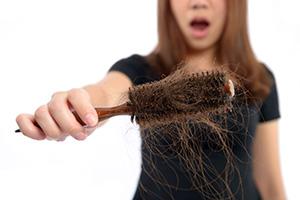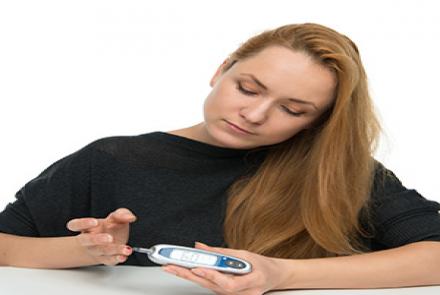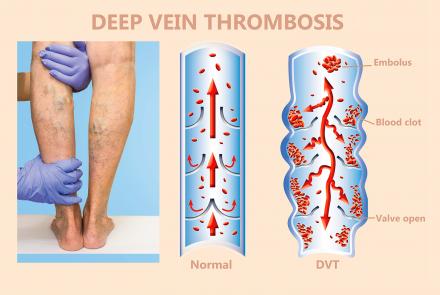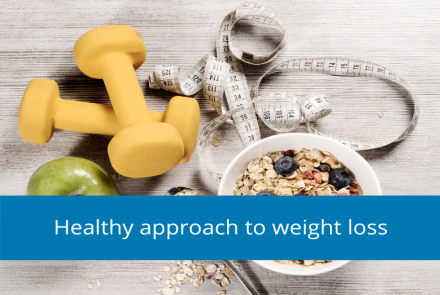
Could Polycystic Ovary Syndrome (PCOS) be the cause of your hair loss or excessive facial hair? If it isn't treated or the underlying causes not addressed, over time it can lead to infertility, diabetes and heart disease. Obstetrician & gynaecologist Dr. Chandan Dubey advises on the key treatments for PCOS:
What is the first line of treatment for most PCOS patients?
PCOS is characterised by and diagnosed when two of the following 3 features are seen in a woman:
- Menstrual cycles coming at intervals of longer than 35 days.
- Androgenic features like hirsutism (excessive facial or body hair), acne, or alopecia (hair loss) and/or lab tests showing increased levels of androgens (male hormones).
- Polycystic ovaries on ultrasound.
Treatment will depend on the clinical problem with which the patient presents. For PCOS, treatment has to be individualized and tailored for each patient.
- A teenager or adolescent may be bothered only about acne and hirsutism.
- Obesity if present aggravates all features of PCOS hence weight reduction with diet, exercise and lifestyle changes has to be stressed.
- Cosmetic measures may also be advised like waxing, bleaching. Or more permanent treatment like epilation, laser, or electrolysis.
- Hormones like combined pills with cyproterone acetate with or without metformin are also used as first line drugs in treatment of hirsutism and acne.
- Period irregularities and long intervals between periods may result in subfertility and require ovulation induction with ovulation inducing drugs but the most important advice would again be weight reduction by diet and exercise.
Even a reduction of 5% of weight may be enough in itself to correct the menstrual irregularity and help in conceiving and also increase the response to ovulation drugs.
Do many patients prefer metformin because it can cause weight loss as a side-effect?
Metformin is widely used in PCOS as its basic action as an insulin sensitising agent helps to reduce the insulin resistance. This improves hirsutism, acne and also may help to regularize the menstrual cycles.
Metformin is not a drug for weight reduction but it may help in women who are on a diet and exercise regimen for weight reduction.
How important is changing one’s lifestyle? What lifestyle changes do you usually recommended?
Lifestyle changes are the first line of management for all presentations of PCOS. They include diet and exercise regimens to reduce weight in PCOS patients who are overweight or obese.
Diet should be tailored according to requirement and individualized. A dietician may need to be consulted especially if weight reduction is needed.
Related Reading: 8 Dietary Guidelines for PCOS
What treatment is best for hair loss (thinning scalp hair) due to PCOS?
Hair loss is a problem for which a dermatologist will need to be consulted. Since the problem is male pattern of balding due to androgen hormone excess pills containing antiandrogens like cyproterone acetate may help. In severe cases hair transplant or wigs may be needed.
What treatment is apt for the skin changes such as darkening and acne?
Darkening of skin is due to high levels of insulin. Weight reduction by diet and exercise and metformin may help. A dermatologist consultation may be needed. Acne in PCOS may reduce with combined oral pills containing cyproterone acetate. Weight reduction will also help. A dermatologist consultation may be needed.
What percent of PCOS patients have trouble conceiving? What are the options for a patient facing trouble with conception or infertility?
A large percentage of women with PCOS may have infertility. The first line of treatment is weight loss by diet and exercise. Even a 5% reduction may help her conceive by making her cycles regular and restoring ovulation.
The next steps are:
- Ovulation induction drugs like clomiphene with or without metformin, letrozole, and if these don't work then gonadotrophins.
- Laparoscopic ovarian drilling.
- IVF, if all else fails.
What are the common complications of PCOS?
Women with PCOS are at risk of developing Type 2 diabetes, hypertension, hyperlipidemias, and cardiovascular disease. Women who are overweight and obese and have PCOS are at greater risk. They would need help from a physician, endocrinologist or cardiologist if such problems develop.
Women with PCOS who conceive are at risk of gestational diabetes and should be screened for the same.
Delayed menstrual cycles also increase the risk of endometrial hyperplasia and (thickening of endometrial lining with heavy irregular periods) and endometrial cancer.
Women with periods coming at intervals longer than 3 months need to see a gynecologist and take progesterone to induce a withdrawal bleed.
Dr. Chandan Dubey is a consultant Obstetrician & Gynaecologist at Al Zahra Hospital, Sharjah, UAE. Her field of specialisation is gynaecological laparoscopic surgery.
















